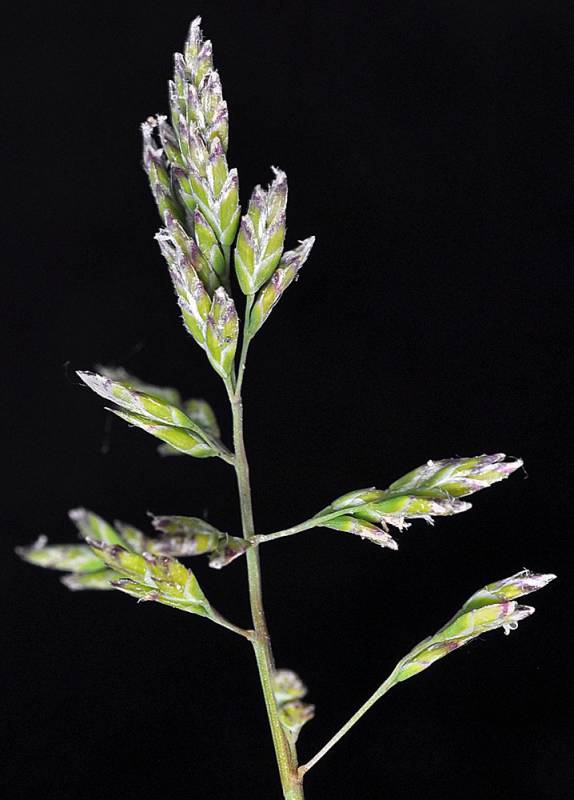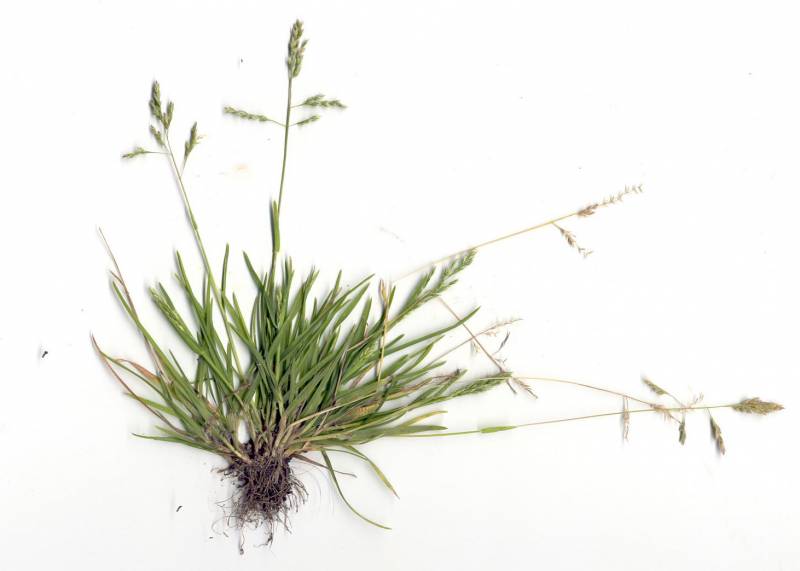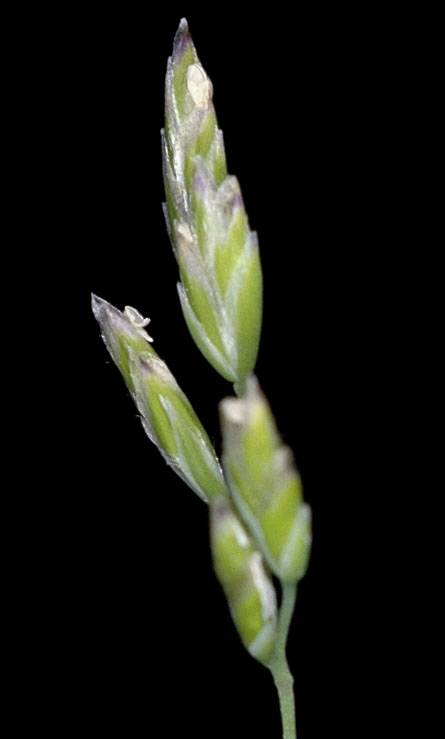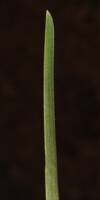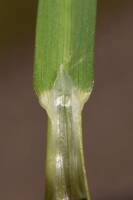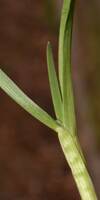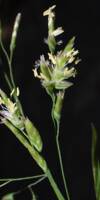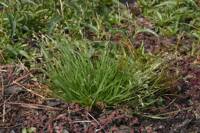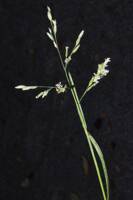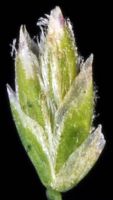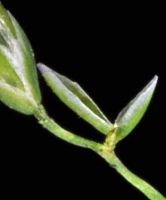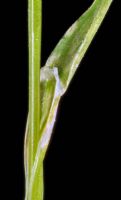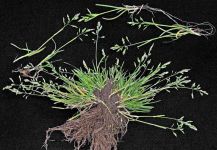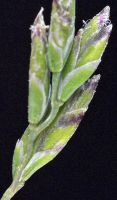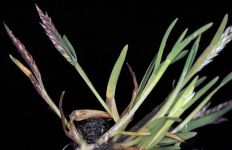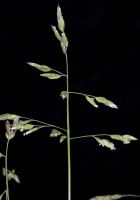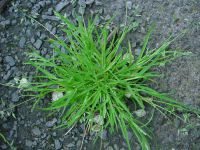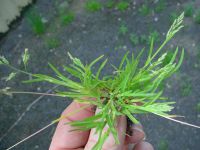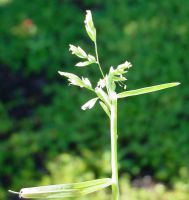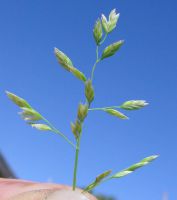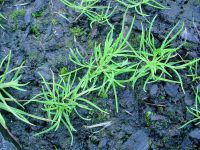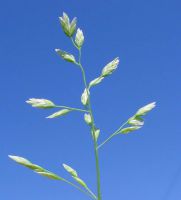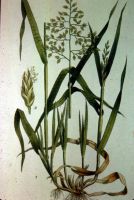Distribution: Occurring on both sides of the Cascades crest in Washington; Alaska to California, east across North America to the Atlantic Coast.
Habitat: Lawns, fields, parking lots, sidewalks, roadsides, wastelots, prairies and grassy balds, and other disturbed, open areas.
Flowers: March-August
Origin: Introduced from Eurasia
Growth Duration: Annual, Biennial
Conservation Status: Not of concern
Pollination: Wind
Glabrous annual, the culms 5-20 cm. tall, hollow, rooting at the nodes and forming mats.
Sheaths closed below, but open over half their length; ligules about 1 mm. long, rounded to truncate; blades 1-3.5 mm. broad, usually folded, the tip prow-like.
Inflorescence a pyramidal panicle 3-8 cm. long, the branches spreading and somewhat rigid; spikelets 3- to 6-flowered, 4-6 mm. long; glumes unequal, the first 1-nerved, about 2 mm. long, the second 3-nerved, much the broader; florets rather distant, the rachilla visible; lemmas about 3.5 mm. long, 5-nerved, the margins purplish and papery, usually pubescent along the keel and marginal nerves; paleas slightly shorter than the lemmas, 2-keeled.
Publication: Sp. Pl. 1: 68. 1753.
Poa annua L. var. reptans Hausskn.
PNW Herbaria: Specimen records of Poa annua in the Consortium of Pacific Northwest Herbaria database
WA Flora Checklist: Poa annua checklist entry
OregonFlora: Poa annua information
E-Flora BC: Poa annua atlas page
CalPhotos: Poa annua photos

